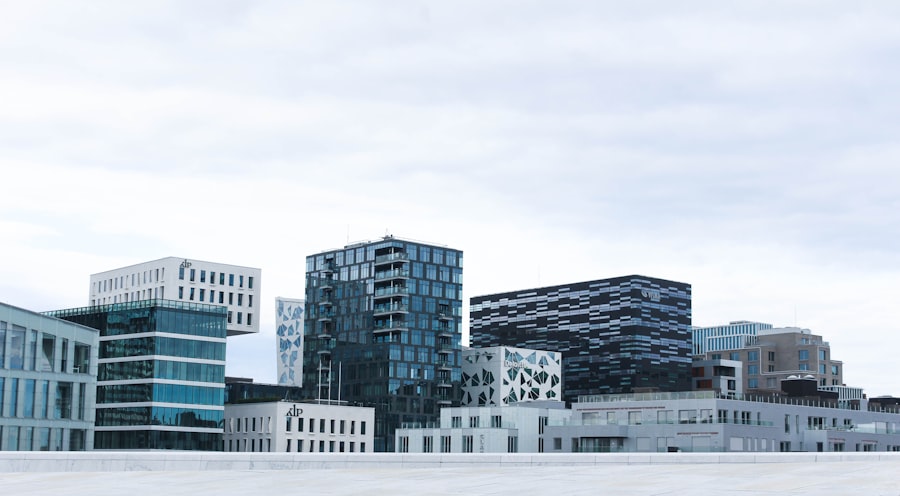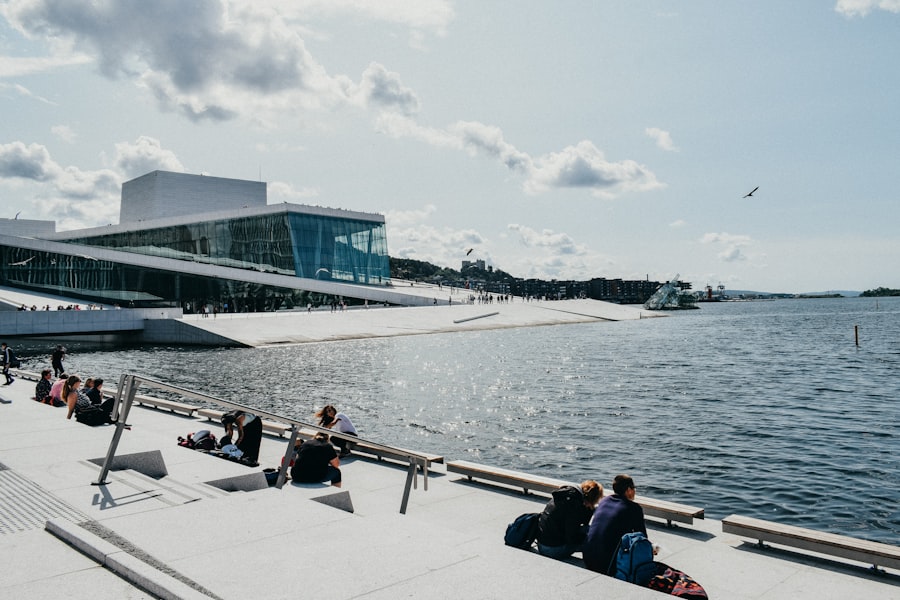Generational living, a concept that has gained traction in various parts of the world, holds a unique place in Norwegian society. In Norway, the idea of multiple generations cohabiting under one roof is not merely a trend but a reflection of deeply rooted cultural values. This arrangement fosters a sense of community and belonging, allowing families to share resources, responsibilities, and experiences.
As the world becomes increasingly globalised, the traditional structures of family life are evolving, yet the essence of generational living remains steadfast in Norway. The Norway Relocation Group plays a pivotal role in facilitating this transition for newcomers. For those moving to Norway, understanding the nuances of generational living can be crucial for integration into Norwegian society.
The group offers invaluable resources and support, helping families navigate the complexities of relocation while embracing the rich cultural tapestry that defines Norway. By providing insights into local customs and practices, the Norway Relocation Group ensures that families can adapt seamlessly to their new environment, making the most of their generational living experience. Schedule a one-on-one consultation with our relocation specialists to simplify your move to Norway.
Summary
- Generational living is a common practice in Norway, where multiple generations live together in the same household.
- Family holds great importance in Norwegian culture, and generational living reflects the strong emphasis on family bonds and support.
- Traditional living arrangements in Norway often involve grandparents living with their adult children and grandchildren under the same roof.
- Elders play a significant role in Norwegian families, providing wisdom, guidance, and childcare support within the generational living setup.
- Interactions between different generations in Norwegian families foster a sense of community, mutual respect, and shared responsibility.
The Importance of Family in Norwegian Culture
Family is at the heart of Norwegian culture, serving as a cornerstone for social interaction and emotional support. Norwegians place immense value on familial bonds, often prioritising time spent with loved ones over individual pursuits. This emphasis on family is evident in various aspects of daily life, from communal meals to shared celebrations.
The strong familial ties foster a sense of security and belonging, which is particularly important in a society that values egalitarianism and social welfare. In this context, generational living becomes a natural extension of these familial values. It allows families to maintain close connections while providing mutual support across different age groups.
The interdependence that arises from such arrangements not only strengthens family ties but also enriches the lives of all members involved. As families navigate the challenges of modern life, the importance of having a robust support system becomes increasingly apparent, making generational living an appealing option for many Norwegians.
Traditional Living Arrangements in Norway

Historically, Norwegian families have often lived in close proximity to one another, with extended families sharing homes or residing nearby. This traditional living arrangement has its roots in agrarian society, where families relied on one another for labour and support. As urbanisation took hold, these arrangements evolved but did not disappear entirely.
Today, many Norwegians still embrace the idea of living with extended family members, whether it be grandparents, aunts, uncles, or cousins. The architectural landscape of Norway reflects this tradition as well. Many homes are designed with multi-generational living in mind, featuring separate living spaces or annexes that allow for privacy while still fostering togetherness.
This thoughtful design not only accommodates the needs of different generations but also reinforces the cultural significance of family cohesion. As modern life continues to change, these traditional living arrangements remain relevant, adapting to contemporary needs while preserving their core values.
The Role of Elders in Norwegian Families
Elders hold a revered position within Norwegian families, often regarded as the keepers of wisdom and tradition. Their experiences and insights are invaluable resources for younger generations, who benefit from their guidance in navigating life’s challenges. In many cases, grandparents play an active role in raising grandchildren, providing not only childcare but also imparting cultural values and family history.
This dynamic fosters a sense of continuity within families, as stories and traditions are passed down through generations. Elders often serve as a bridge between the past and present, helping younger family members understand their roots while encouraging them to forge their own paths. In this way, the role of elders transcends mere caregiving; they become integral to the family’s identity and cohesion.
Interactions Between Different Generations in Norwegian Families
The interactions between different generations in Norwegian families are characterised by mutual respect and understanding. Unlike some cultures where hierarchical structures dictate relationships, Norwegian families often embrace egalitarian principles that promote open communication and collaboration. This approach allows for healthy discussions about values, beliefs, and expectations, fostering an environment where all voices are heard.
Family gatherings often serve as opportunities for intergenerational bonding, with activities designed to engage members of all ages. Whether it’s cooking traditional meals together or participating in outdoor activities like hiking or skiing, these shared experiences strengthen familial ties and create lasting memories. Such interactions not only enrich individual lives but also contribute to a sense of community that extends beyond the family unit.
Benefits of Generational Living for Children and Adults

Generational living offers numerous benefits for both children and adults alike. For children, growing up in a multi-generational household provides them with a unique perspective on life. They gain access to a wealth of knowledge and experience from their elders, which can enhance their emotional intelligence and social skills.
Additionally, children benefit from the stability and security that comes from having multiple caregivers who are invested in their well-being. For adults, generational living can alleviate some of the pressures associated with modern life. Sharing responsibilities such as childcare or household chores can lead to reduced stress levels and improved work-life balance.
Furthermore, having family members nearby can provide emotional support during challenging times, fostering resilience and adaptability. The sense of community that arises from generational living can also lead to increased happiness and overall life satisfaction.
Challenges of Generational Living in Modern Norway
Despite its many advantages, generational living is not without its challenges. One significant issue is the potential for conflicts arising from differing values or lifestyles among family members. As each generation navigates its own set of societal norms and expectations, misunderstandings can occur, leading to tension within the household.
Open communication is essential to address these differences and find common ground. Another challenge is the practical aspect of space and resources. In urban areas where housing is often limited and expensive, accommodating multiple generations can be difficult.
Families may need to make compromises regarding privacy or personal space to ensure everyone’s needs are met. Additionally, balancing independence with interdependence can be tricky; while some family members may thrive on close connections, others may feel stifled by too much togetherness.
Modern Trends in Generational Living in Norway
As societal norms continue to evolve, so too do the trends surrounding generational living in Norway. Increasingly, younger generations are recognising the benefits of cohabiting with their parents or grandparents as they face rising housing costs and economic uncertainty. This shift has led to a resurgence in multi-generational households as families seek to pool resources and support one another.
Moreover, there is a growing trend towards intentional communities where families choose to live together or near one another for mutual support. These communities often prioritise shared values such as sustainability and social responsibility, creating environments that foster collaboration among residents. As more people embrace these modern trends in generational living, it is likely that the traditional concept will continue to adapt while remaining relevant in contemporary society.
Balancing Independence and Interdependence in Generational Living
Finding the right balance between independence and interdependence is crucial for successful generational living arrangements. While close-knit family ties can provide essential support systems, it is equally important for individuals to maintain their autonomy and personal space. Establishing clear boundaries can help prevent feelings of suffocation or resentment among family members.
Encouraging open dialogue about needs and expectations is vital in achieving this balance. Families should regularly check in with one another to discuss any concerns or adjustments that may be necessary to ensure everyone feels comfortable within the shared living space. By fostering an environment where each member’s voice is valued, families can create harmonious relationships that honour both independence and interdependence.
The Impact of Generational Living on Norwegian Society
The prevalence of generational living has far-reaching implications for Norwegian society as a whole. As families come together under one roof, they contribute to a stronger sense of community and social cohesion. This interconnectedness can lead to increased civic engagement and participation in local initiatives, ultimately benefiting society at large.
Furthermore, generational living can help address some pressing social issues such as loneliness and isolation among older adults. By fostering intergenerational relationships, communities can create supportive networks that enhance well-being for all ages. As more families embrace this way of life, it is likely that Norway will continue to evolve into a society that values collaboration and mutual support across generations.
The Future of Generational Living in Norway
As we look towards the future, it is clear that generational living will remain an integral part of Norwegian culture. The enduring importance of family bonds combined with modern trends suggests that this way of life will continue to adapt while retaining its core values. With organisations like the Norway Relocation Group providing essential support for newcomers navigating this landscape, more families will have the opportunity to experience the benefits of generational living.
Moreover, as language barriers are overcome through initiatives such as the Norwegian courses offered at the NLS Norwegian Language School in Oslo, integration into this rich cultural tapestry will become increasingly accessible for expatriates. By embracing both traditional values and contemporary practices surrounding generational living, Norway stands poised to foster resilient families that thrive together across generations for years to come.
Register for a Norwegian class at the NLS Norwegian Language School now!

